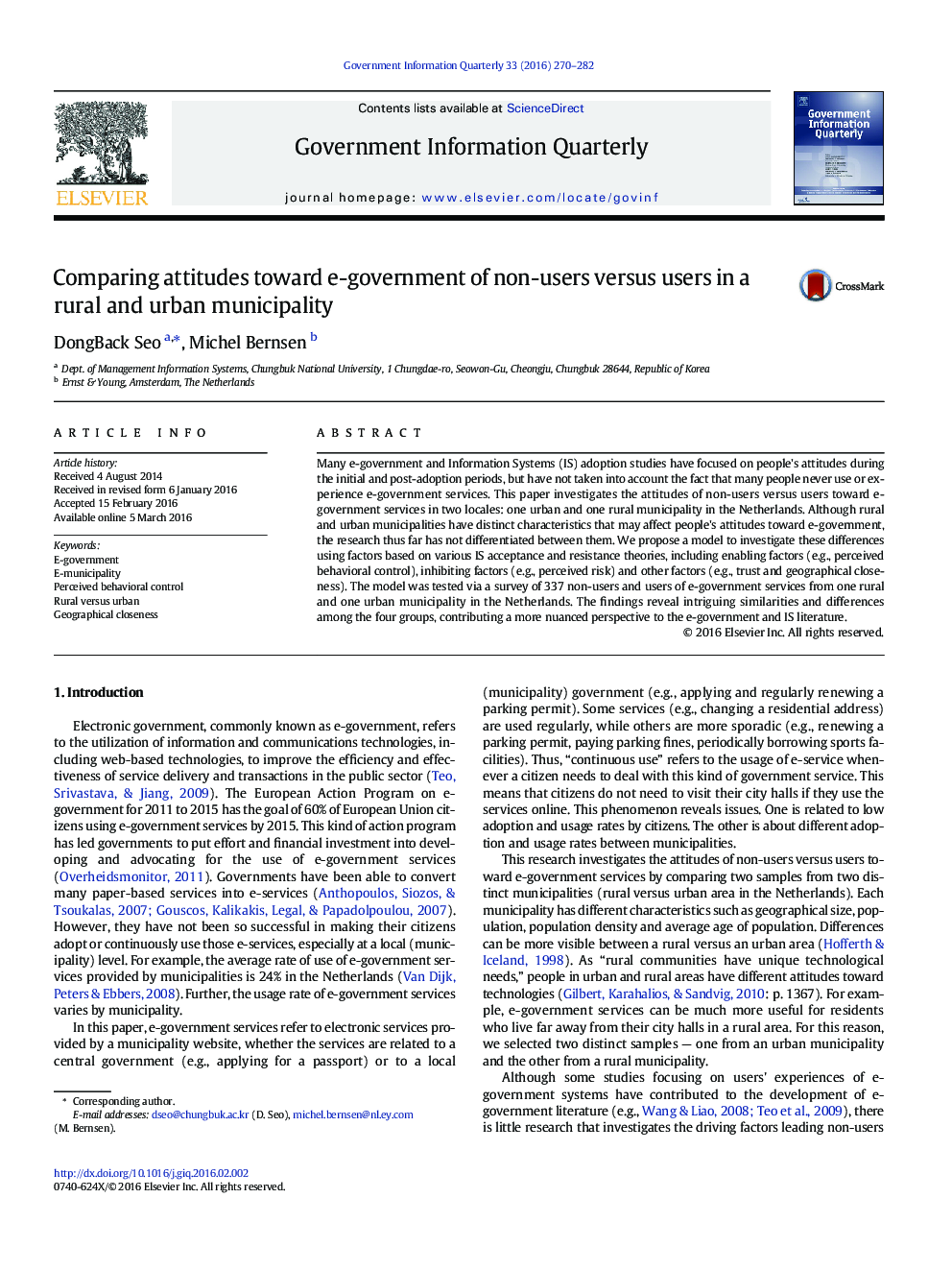| Article ID | Journal | Published Year | Pages | File Type |
|---|---|---|---|---|
| 1024253 | Government Information Quarterly | 2016 | 13 Pages |
•We examine e-government services from a demand perspective.•We compare non-users of e-government services with users.•We also compare people in a rural municipality with those in an urban municipality.•We identify the roles of inhibiting factors in the e-government context.•We establish a relationship between subjective norm and resistance to change.
Many e-government and Information Systems (IS) adoption studies have focused on people's attitudes during the initial and post-adoption periods, but have not taken into account the fact that many people never use or experience e-government services. This paper investigates the attitudes of non-users versus users toward e-government services in two locales: one urban and one rural municipality in the Netherlands. Although rural and urban municipalities have distinct characteristics that may affect people's attitudes toward e-government, the research thus far has not differentiated between them. We propose a model to investigate these differences using factors based on various IS acceptance and resistance theories, including enabling factors (e.g., perceived behavioral control), inhibiting factors (e.g., perceived risk) and other factors (e.g., trust and geographical closeness). The model was tested via a survey of 337 non-users and users of e-government services from one rural and one urban municipality in the Netherlands. The findings reveal intriguing similarities and differences among the four groups, contributing a more nuanced perspective to the e-government and IS literature.
